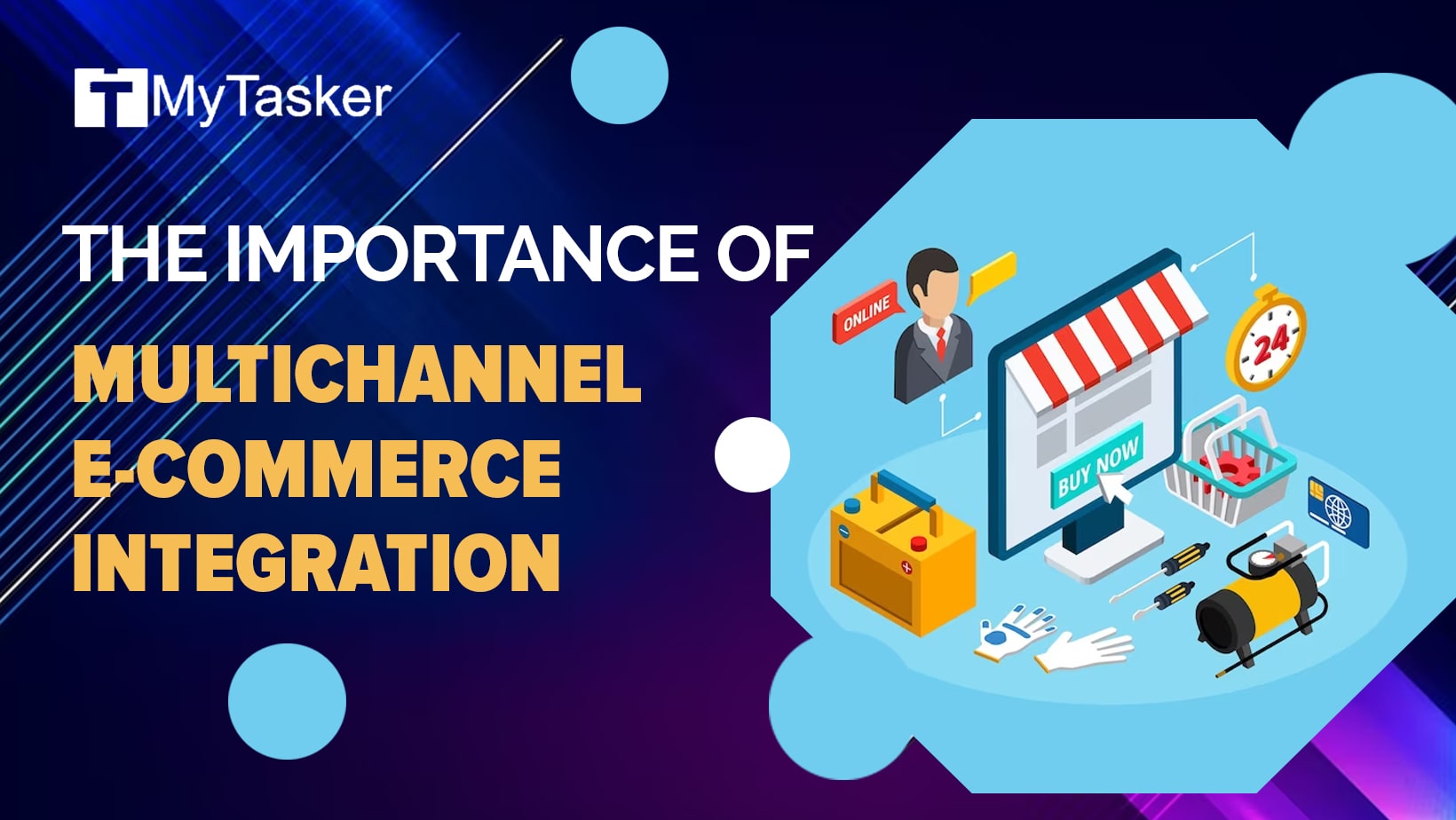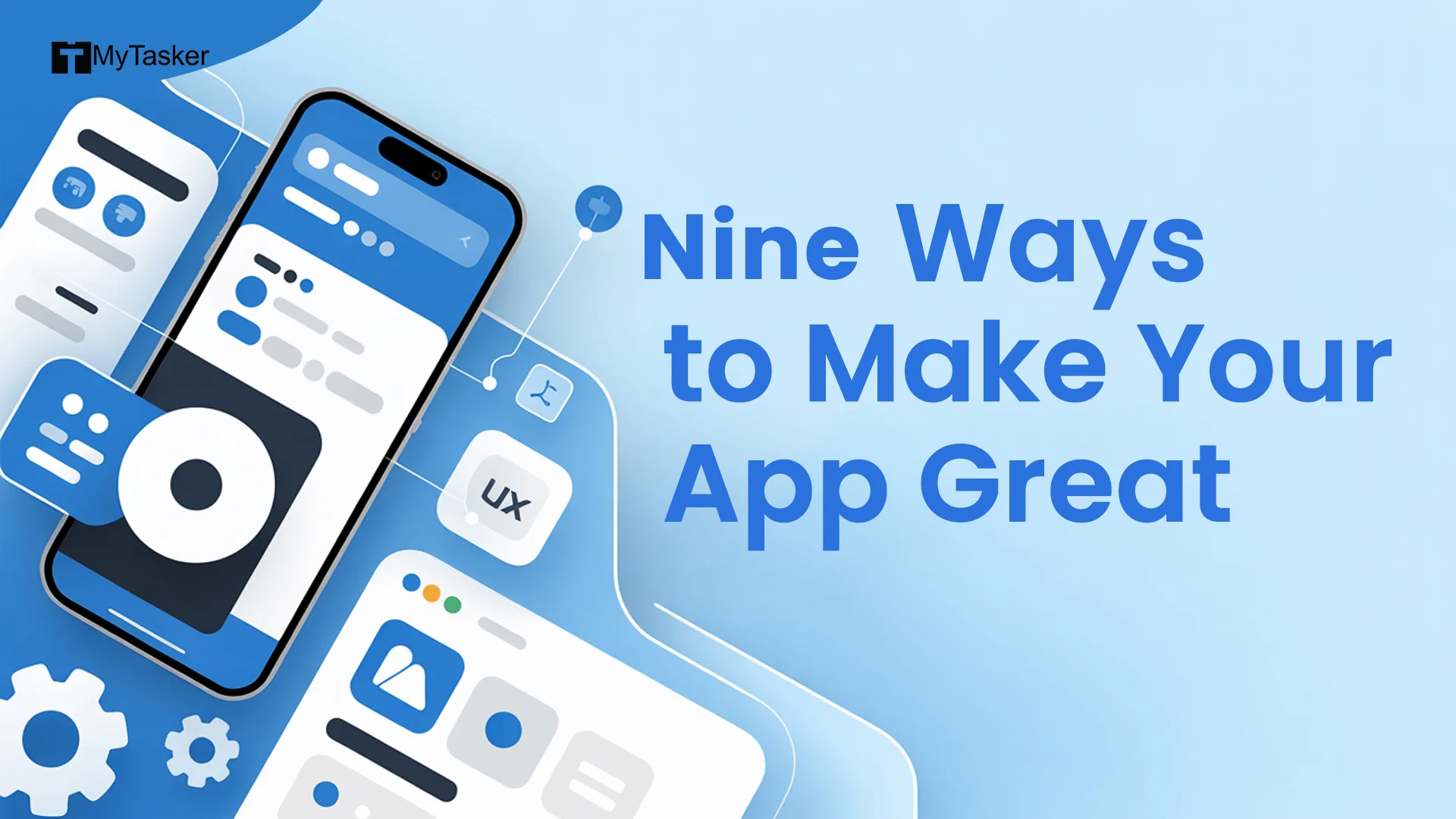To this day, the E-Commerce industry has become inextricable considering the global retail framework. E-Commerce businesses have flourished significantly and will continue to grow. Keeping this in mind, sellers are looking to integrate multiple E-Commerce sales channels to expand the chance of doing business.
There are lots of benefits when integrating multichannel E-Commerce business. However, to reap the maximum profits, it is important to manage the channels uniquely. For this, business owners require multichannel e-commerce software. The purpose of these tools is to combine multiple sales channel processes and establish connections to inventory. Multichannel e-commerce software is required for seamlessly managing multiple channels without requiring any Excel data sheet.
What Is Multichannel Integration?
Multichannel integration for e-commerce businesses is the process of connecting multiple channels, systems or platforms. Basically connecting those mediums that are involved in various e-commerce strategies. Streamlining the data flow from and to the system is crucial. Multichannel integration ensures a logical and consistent online shopping experience for your customers.
In simpler terms, different channels and devices like social media, smartphones, applications, websites, etc, are used to sell goods. The idea has emerged from the increasing demand for consistent shopping experiences from new-age consumers. Customers are confidently looking for digital touchpoints from anywhere and at any time. In fact, more than 70% of customers access multiple sites before finalizing a purchase. Multichannel integration can be the perfect revenue-generating pillar for many online stores.
Why Do You Need to Integrate Multichannel E-Commerce Channel?
Simply put, multichannel e-commerce integration will help to make your business smooth. Let’s take a deeper look into the reasons why the integration of e-commerce sales channels is important.
- Improve Conversion Rate
Having multiple e-commerce channels means you can reach more customers through numerous selling channels. This helps in enhancing visibility and reaching potential customers. The concept is similar to opening multiple outlets at various places in your city so that customers can find you easily. The scope of exploring automatically widens through multiple sales avenues. This also opens up a number of upselling opportunities.
When you expand the presence of your business through multichannel sales platforms, be sure to handle a wider audience. With the increased reach, you will be able to boost the mass market distribution. Multichannel platforms like Amazon and eBay give newcomers the boost to grow their brands. Reputed and well-known sales channels offer simple checkout processes and fulfilment. This extra exposure would definitely bring in more leads and revenue.
- Diversifying the Risk
Selling products online sometimes establishes the risk of burning out your business. Therefore, when a particular channel is not able to perform, it’s good to find out another without delaying a moment. This means the risk gets distributed through multichannel platforms. Integrated multichannel marketing offers you the backup of another revenue-generating channel.
- Boosting Customer Loyalty
Considering the hectic life of consumers today, they tend to make purchases while on the go. Consumers want to get engaged in a hassle-free shopping experience while performing other activities. Integrated multichannel marketing software ensures a seamless shopping experience across multiple sales channels. This way you can offer various support mediums for the customer channels. These include live chat, social media and on-call conversation. This approach will help you to achieve incredible customer loyalty through better reviews and procurements.
- Gathering Insightful Data Through E-Commerce Integration
When you have multiple sales channels, you will automatically access a wide range of customer data. This is highly effective data to create an attractive profile for your viewers. These include demographic, purchasing history, location, time zone, interests, devices used and others. This set of information further boosts the performance of multichannel listing software. The acquired data will greatly help a business owner to prominently develop marketing campaigns and sales strategies to enhance conversion rate. Feel free to contact a reliable and experienced digital marketing consulting firm to know how to gather data through e-commerce integration.
- Improving Inventory Transparency
Multichannel integration can help you unify the data of all the channels. This allows monitoring of the inventory of a particular product throughout the stocking locations. For instance, if you find that a default location for shipping is not that satisfactory, you can easily switch to the next affordable zone. It gives the opportunity to search all warehouses listed via registered channels for your brand in case a product is out of order. The product can be delivered to the customer when an order is placed regardless of a negative product status on one platform. Therefore, the opportunity of selling will not be compromised at any cost.
- Improving The Sense of Demand For E-Commerce Marketplace
Every year, overstock is one of the significant reasons that cost businesses a notable amount. Overstocking mainly occurs due to inappropriate planning and buying decisions. This situation arises from poor data collection and forecasting. Software for multichannel integration will help you to determine the sales data and overall performance of all channels. It provides a more accurate sales forecast and proper inventory management. The overall approach only helps you to enhance your business performance.
- Eliminating the Errors
Take lessons from your business mistakes and determine how hard they were when you tried fixing the issues. If you want to avoid all these messes all at once, think about multichannel e-commerce software integrations. This will help you with a machine to understand the workload. It substantially extracts human errors from every scenario.
- Integrating Analytics & Communications
Meeting the needs of customers is an important part of increasing the ROI. This is your call to establish multiple channels for your e-commerce business. It helps to create a range of informational streams through multiple ways of communication. Moreover, acquire valuable analytics from the multichannel audience to improve customer satisfaction. With this data and communication, you can easily associate with consumer needs and resolve pain points. This will eventually boost the conversion rates.
Features Of Multichannel E-Commerce Software Integrations
- Centralized Dashboard
With the presence of a synthesized dashboard in the software, business owners can evaluate the effectiveness of various sales campaigns. The dashboard shows all the information on best-selling products and account-specific orders received. This includes recent orders received, summaries, monthly sales records, lifetime sales, etc.
- Managing & Uploading Bulk Products
When it comes to e-commerce marketplace integration, experience the bliss of uploading and managing bulk items to the marketplace from your online store. This feature auto-manages product catalogs while you focus on core business operations.
- Automated Crons
The feature of automated crons prevents manual mistakes. Crons are a form of instructions that direct a server to perform a preset task at a particular time. This feature is helpful when performing repetitive functions or tasks. This feature also helps in boosting the speed of sending data across multiple systems.
- Real-Time Updates
One of the most crucial characteristics of e-commerce integration is real-time updates and communications across different platforms. This is applicable for orders received, inventories, and product information. Based on real-time data, you can sell products accordingly while prioritizing the stock levels and eliminating the risk of underselling or overselling.
- All-In-One Order Management
Centrally available order management is a key feature of e-commerce integration. This helps merchants to perform different types of order-centric activities even if they are from multiple platforms. This includes shipping, deleting orders, and rejecting or accepting. With this feature, sellers need not log in to multiple platforms for managing the orders. Remember, if vendors fail to work on online orders within a specific time, you may risk hampering your business.
- Support For Multiple Seller Accounts
E-commerce marketplace integration allows you to manage multiple seller accounts from the very same marketplace. Even if you have regional limits, managing the accounts will never be an issue. This type of integration allows selling the same merchandise from a sole location with different reports. An e-commerce website development company working for the UK, US, and multiple global clients, can support you with this kind of integration.
Wrapping Up
E-commerce marketplace management is a strategy that is bound to bring a plethora of benefits to online sellers. Well, it may seem a bit overwhelming at the initial stage, however, with professional assistance you can gain a lot. There is a lot to consider when handling such unique integration especially, finding out the best channels, target customers and others. So, it’s wise to follow a professional approach with skilled implementations.
Get in touch with an expert at MyTasker and share your stories to implement in the same way.















